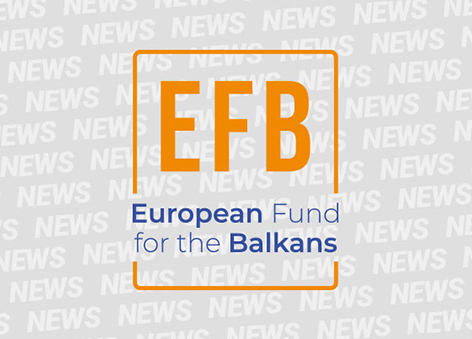
 Policy Dialogue – 17 November 2010
Policy Dialogue – 17 November 2010
Brussels
The show that many people in the region are still struggling to live on their incomes. There are, however, positive signs and each country has to be examined separately.
A lively policy dialogue, held in cooperation with the European Fund for the Balkans did just that with concerns being expressed about conditions in Bosnia and Herzegovina and Croats’ increasingly negative feelings about EU accession.
Other subjects touched on included corruption, trust in institutions, ‘Greater Albania’, ethnic diversity, the impact of independence in Kosovo, and what the EU was offering the region.
Hedvig Morvai-Horvat, Executive Director, European Fund for the Balkans, emphasised the need to build bridges between the region and the EU. The Balkan Monitor survey is a “one-stop-shop” for everyone interested in the Western Balkans, she said, providing trends as well as giving access to real data and real stories. It provides information from ordinary people, not from the usual suspects.
Gallup Europe’s Managing Director Robert Manchin presented an overview of the 2010 Balkan Monitor Survey results and commenting on the title of the event - “The rocky road to normality” - said it was difficult to define normality given current conditions in the world.
Vetton Surroi, Chairman of the Board, Foreign Policy Club, focused on the results from Kosovo, which indicated that independence was “sinking in”, and people are no longer afraid to speak their mind. However, the honeymoon is over and citizens are experiencing the reality check – now questioning everything. However, he was sure that Kosovo was moving in the right direction.
Eduard Kukan MEP, Chair, Delegation for relations with Albania, Bosnia and Herzegovina, Serbia, Montenegro and Kosovo, said he appreciated the “outreach” of the survey as his visits to the region tend to be restricted to meeting politicians and journalists. Acknowledging that Kosovo had the youngest society in Europe, Mr Kukan said Kosovars should take advantage of this.
Catherine Wendt, Head of Communications Unit, DG Enlargement, said there was an element of enlargement fatigue within EU Member States, which was leading to questions about the EU’s commitment to the Balkan region. However, she argued, the EU’s process was credible and one had to maintain progress and deliver.
Rosa Balfour, Senior Policy Analyst, EPC, urged caution when looking at the results as the current crisis was global and could impact on people’s responses to surveys everywhere, not just in the Balkans. She argued that the results show a move away from “Balkan exceptionalism”, which is important. Low levels of trust in institutions need to be understood in the context of young democracies in new states, still undergoing transition to and consolidation of democracy.
Neil MacDonald, Financial Times’ Belgrade Correspondent wondered why Croatians were happier with their living standards than Kosovars. He felt that in 2012, they would be comparing their living conditions with those in Slovenia, whereas currently they were comparing current conditions to those in wartime.
Highlights from the report:
- Citizens in Kosovo and Croatia do not complain as much as others about not being able to get by on their household income (52%-54% having difficulty vs. 65%-78% for all others);
- although the effects of the crisis are flattening out across the region, there has been a big jump in the number of Kosovars who are short of money to buy essential goods (from 18% in 2009 to 29% in 2010);
- in Kosovo, citizens see much more corruption (50% see more corruption than five years ago, compared to 28% in 2009);
- Croatia has the highest proportion of citizens who say the country is going in a bad direction (81%) and there is very little trust in either internal or external institutions;
- there is a general loss of confidence in all institutions for all Macedonians; for example, only 5% ofMacedonians and 1% of Macedonian Albanians trust the judiciary;
- the church is no longer the region’s most trusted institution;
- support for joining the EU has fallen in Croatia; 25% think it would be a good thing vs. 35% who thought so in 2006; however 55% still want Croatia to join;
- Serbia has the lowest number of people (41%) who think the EU wants them to become a member;
- support for ‘Greater Albania’ is growing in Kosovo, but dropping in Albania;
- Macedonia (32%) and Serbia (28%) have the lowest proportion of people who are certain there will be no further armed conflict.






